Finding a different path to fruitfulness
People
With one in six Australian couples experiencing infertility, a new book by Debra Vermeer will be a welcome resource for Catholic couples.
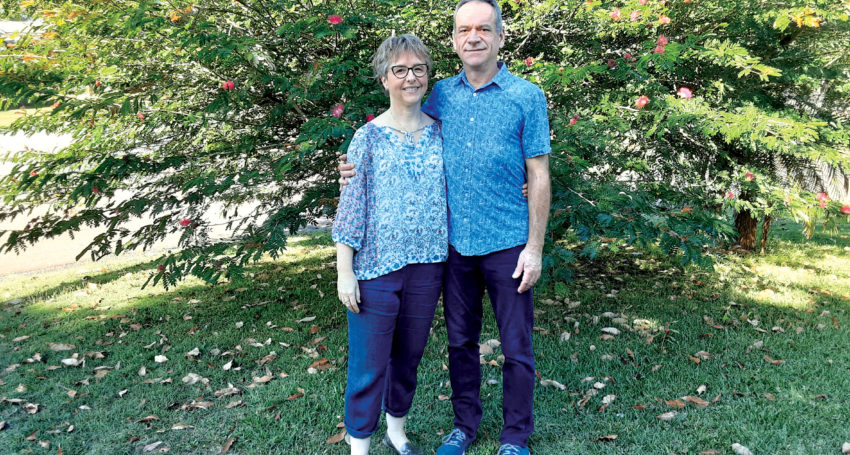
When Catholic convert and respected journalist Debra Vermeer was grappling with the reality that she and her husband Tony could not conceive a child, she found the shelves of bookshops devoid of helpful literature.
There was a plethora of material on parenting and different fertility methods and technologies, but very little to support couples living with infertility.
A former Canberra political reporter and media adviser to the Australian Catholic Bishops Conference, Debra “heard God whisper” that maybe she could write a book about infertility in a faith context.
Advertisement
As well as putting into words her personal experience and deepest thoughts, she interviewed six other couples who have “walked their own path through infertility” and she has shared these stories in her recently published book Life to the Full.
As the title suggests, it is a book of hope. But that doesn’t diminish the pain and anguish experienced by couples whose faith is based on the divine command of ‘be fruitful and multiply’ (Genesis 1:28) and the Catholic teaching that children are ‘the supreme gift of marriage’ (Gaudiem et Spes, 161).
In the introduction, Debra unpacks biblical references to infertility and the fact that they almost always go hand in hand with God intervening.
“I found little solace in these stories of God blessing infertile (and often downright elderly) couples with a baby as a reward for their faithfulness,” she writes.
“If God could do that for women like Sarah, Rachel and Hannah in the Old Testament and Mary’s cousin Elizabeth in the New Testament, then why wouldn’t He do it for us?”
But through her discussions with bishop friends and her spiritual adviser she came to the understanding that these Scripture stories are part of a bigger narrative of God’s “unfailing, liberating love” and it is “in our barrenness and in our suffering that God’s blessing will come”.
Revealing her devastation at not falling pregnant after marrying fellow journalist Tony Vermeer, a widower with two teenage children at the time, Debra writes of crying at shopping centres because she’d seen a random baby and sometimes breaking down for no apparent reason at all.
“I now recognise it as profound grief. The future that I had dreamed of and yearned for was swept away and it was like I was incapable of reimagining a future,” she writes.
But her faith, which has led her to becoming a Benedictine oblate (a vowed associate of the order) and frequent visitor to the Sisters’ Jamberoo Abbey, was a constant source of solace.
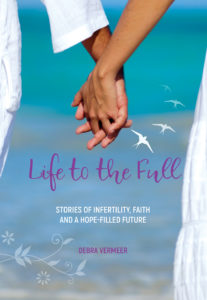
After 15 years of marriage she says she has come to understand that “despite the cross of infertility we have been called to bear, or perhaps through it, we are infinitely blessed”.
Advertisement
“God has given us a strong, deep and true love as a married couple.”
One of the most moving parts of Debra’s story is her relationship with her stepchildren who she describes as “two of the finest human beings you’ll ever meet”.
“What continues to amaze me and to humble me is the way Cass and Zac received me into their lives,” she writes.
“Right from the beginning, long before we were married, they welcomed me with open arms. They received my love warmly and they loved me wholeheartedly in return. They invited me into the fabric of their individual lives, trusting in me and confiding in me. We loved spending time together, both one-on-one and as a family. I learnt a lot about how to love in that first year and my teachers were the two young souls who God had sent into my life.”
Like Debra and Tony, each couple in the book has a unique story to tell, of how they fell in love, their hopes and dreams, their faith and how it influenced the way they responded to their infertility.
Debra acknowledges that most infertile couples, including many Catholic couples, choose to try IVF and although the statistics show that many are unsuccessful, the beautiful children born through IVF are loved by all.
However, the couples in her book have, as a result of their faith, chosen another road.
Because of the prevalence of IVF in the modern understanding of infertility, choosing not to use this type of technology can land you in a lonely place, according to Debra.
“Many people don’t understand your decision, or are even hostile to it,” she writes.
One of the women featured in the book, Trudy, says that despite being told that IVF was their only lifeline, they never felt tempted to pursue it.
“We were always comfortable with our decision not to pursue IVF and our decision on that became even stronger once we were faced with the situation,” Trudy says.
“It wasn’t just blindly following the teaching of the Church, but it was something we were really convinced about, that we can’t destroy other embryos just for the sake of one. That was just not something we wanted to do.
“It was strange how angry that decision made a lot of people though, especially doctors. We had one doctor who was recommending IVF and when we told him our decision he got really angry and started shouting at us.”
The six women spoke to Debra of the pain of seeing their friends get pregnant, the guilt of not giving their parents grandchildren, the overwhelming grief at times such as Mother’s Day and baptisms.
Several couples have navigated the long and complex road to adoption – both local and overseas – with joyous results, one is considering foster parenting and another is still trying to conceive using natural fertility methods.
All have been sustained greatly by their faith and while there may have been times when they’ve questioned God’s plan for them, they have never doubted that he has a plan.
Laura and Joe use much of their free time mentoring young married couples and babysitting for friends.
“So we definitely see our marriage as being fruitful, whether we end up having babies, or adopting or fostering, or not. Having a fruitful marriage is about sharing and multiplying your love as a couple and we’re sure God will lead us in the right paths there. Our job is to stay open to His will and to keep saying, ‘OK God. What next?’”
Life to the Full is a much-needed message of hope for couples unable to have their own children but it has important learnings for the Church as well.
As Debra points out, the statistics of one in six Australian couples experiencing infertility means that on any given Sunday in a Catholic church, there are at least a few couples in the pews who are living with infertility. There was a feeling amongst the couples she interviewed that their pain was not being “seen or heard in a pastoral sense” and that they didn’t quite ‘fit’ anywhere in parish life.
Life to the Full, published by St Pauls Publications, retails for $24.95 and is available from religious bookstores or online at stpauls.com.au/product/10090.



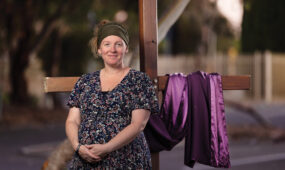
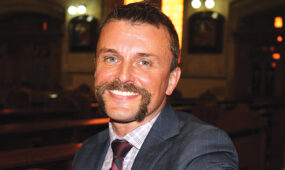
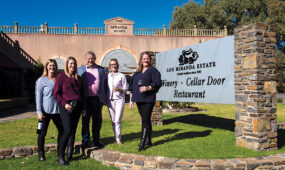
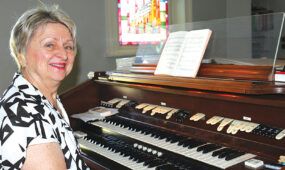

Comments
Show comments Hide comments